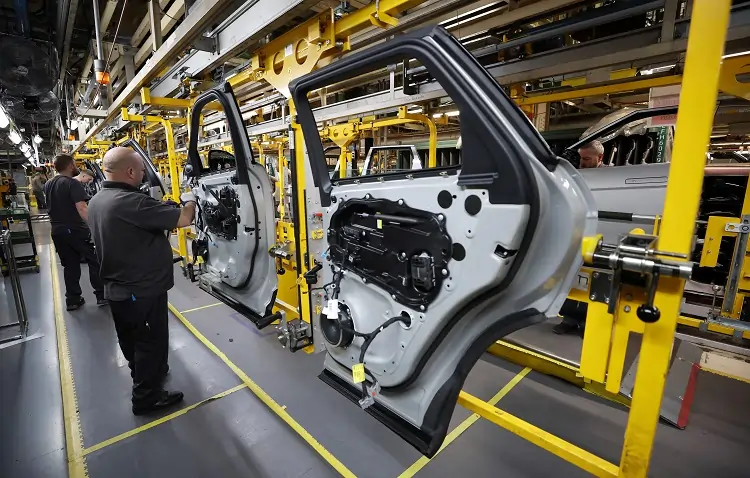
By Andy Bruce
(Reuters) – British manufacturers grappling with falling output and fading growth in new orders see better days ahead, helped by a more stable political environment after the landslide election win for the Labour Party, a survey showed on Monday.
Industry body Make UK and accountants BDO said their gauge of factory output fell to a four-year low of -2% in the third quarter from +9% in the second quarter.
With optimism returning however, respondents forecast a surge to +33% in the fourth quarter of 2024.
The survey added to signs of improved business confidence following the result of the July 4 election, which returned Prime Minister Keir Starmer’s Labour Party to power for the first time in 14 years.
A majority of 58% of companies in the Make UK survey said the change in government would improve British economic growth prospects, with 6% foreseeing a drag.
“Manufacturers are hopeful that a period of greater political stability will provide a better economic outlook ahead, and that in turn is boosting business confidence,” said Richard Austin, head of manufacturing at BDO.
Make UK upgraded its forecast for British economic growth in 2025 to 1.8% from 0.8%, but said the new government had to deliver on promises – such as a long-term industrial strategy – when presents its first budget on Oct. 30.
The official measure of British manufacturing has stagnated in recent years and looks little different to its level of late 2019, before the COVID-19 pandemic.
A recent Reuters analysis showed the sector contributed only 9.2% of British economic output during the second quarter, a record-low share.
Make UK said the new government could help manufacturers by bringing forward the introduction of Britain’s Carbon Border Adjustment Mechanism – which imposes a CO2 emissions fee on imports of various commodities and energy sources – to 2026 from 2027. Doing so would align Britain with the EU and prevent a distortion of trade flows, Make UK said.
The body also called on the government to reform apprenticeship funding, which in its current form has led to a large drop in apprenticeship starts.
“All eyes are on the government’s next steps. We need an industrial strategy that is fit for purpose to ensure that the confidence firms currently have in future economic prospects is not misplaced,” Austin said.
(Reporting by Andy Bruce; editing by David Milliken)


